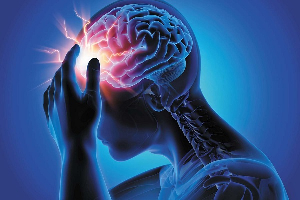Many people suffer from headaches regularly at some time in their life. On the other hand, chronic headaches can be crippling and have a major negative influence on a person's quality of life.
Headaches that recur at least fifteen days a month for a minimum of three months are classified as chronic headaches.
They fall into a number of categories, the most prevalent of which are chronic tension-type headaches and chronic migraines.
Since chronic headaches are more common than occasional headaches and might interfere with everyday activities, it's critical to comprehend their origins and available treatments.
The precise reason of persistent headaches might differ significantly from person to person and is sometimes a result of many causes.
Typical catalysts and extrinsic variables comprise:
1. Genetic Predisposition: The risk of getting chronic headaches is increased in families with a history of headaches, especially migraines.
2. Lifestyle Factors: Inconsistent eating patterns, stress, and restless nights can all intensify headache symptoms.
3. Overuse of medicine: Rebound headaches, in which the headache is brought on by the medicine itself, can result from the frequent use of painkillers.
4. Underlying Medical Conditions: Chronic headaches may be exacerbated by illnesses including high blood pressure, sinusitis, or temporomandibular joint (TMJ) issues.
5. Neurological Factors: Chronic headaches have also been related to alterations in brain chemistry, nerve pathways, or blood flow. A comprehensive examination and a complete medical history are necessary for the diagnosis of persistent headaches. It is common practice to advise patients to maintain a headache journal in which they record the frequency, length, and severity of their headaches as well as any possible causes.
It might be required to have imaging tests, such CT or MRI scans, to rule out other neurological disorders.
A multifaceted strategy is frequently necessary for the effective management of persistent headaches:
1. Medication: Preventive drugs such beta-blockers, antidepressants, or anticonvulsants might lessen the frequency and intensity of headaches. It is also possible to employ acute drugs to treat headache symptoms.
2. Lifestyle Changes: Consistent sleep patterns, a balanced diet, regular exercise, and enough water can all help prevent headaches.
3. Behavioral Therapies: Biofeedback and cognitive-behavioral therapy (CBT) are useful for stress management and pain management in chronic conditions.
4. Alternative Therapies: Some people find relief with massage, acupuncture, and relaxation methods.
5. Surgical Interventions: Surgery may be considered in extreme circumstances when no other treatment works. These may include occipital nerve stimulation or nerve decompression surgery.
It is imperative that you get medical attention if you or someone you love has regular headaches that interfere with day-to-day activities. In addition to being physically taxing, chronic headaches can cause psychological and emotional suffering. Early intervention can enhance results and assist people in taking back control of their life.
As a complicated ailment, chronic headaches call for all-encompassing care. My objective as a neurosurgeon is to collaborate with patients to determine the underlying reasons of their headaches and create a customized treatment strategy.
Many people with conditions might find relief and enjoy happy lives if they take the correct approach.
Do not be reluctant to consult a healthcare provider if you are experiencing chronic headache pain. Taking the initial step towards comprehending and handling your headaches may have a significant impact, since there is hope and assistance accessible.
Health News of Tuesday, 23 July 2024
Source: Dr Simon Badu, Contributor

















